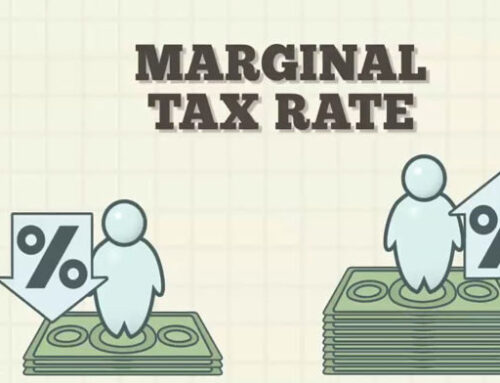Small businesses often face unique challenges when it comes to financial reporting. Compilation engagements, tailored to their needs, offer a valuable solution. In this blog post, we’ll explore how compilation engagements are essential for engagements in small business, what advantages they bring, and how they contribute to informed decision-making.
Supporting Engagements in Small Business Owners:
Small business owners often lack the resources to conduct comprehensive audits or reviews of their financial statements. Compilation engagements provide a middle ground, allowing these businesses to present financial information accurately and in accordance with accounting standards. This assists owners in meeting regulatory requirements while avoiding the higher costs associated with more extensive assurance services.

Navigating Regulatory Demands:
Even though Engagements in Small Business might not require the same level of assurance as larger corporations, they still need to adhere to regulatory guidelines and provide accurate financial information to stakeholders. Compilation engagements enable small businesses to meet these demands by preparing financial statements that are structured and consistent with relevant accounting principles.
Enhancing Decision-Making:
Compilation engagements can significantly enhance decision-making for Engagements in Small Business. Timely and well-presented financial statements provide insights into the company’s financial health and performance. With organized financial information at hand, small business owners can make informed decisions about resource allocation, expansion opportunities, and investment strategies.
Building Credibility with Stakeholders:
While compilation engagements do not provide assurance on financial accuracy, they demonstrate a level of professionalism and commitment to transparency. Small businesses can use compiled financial statements to build credibility with creditors, investors, and other stakeholders, showcasing their dedication to presenting financial information in a structured and standardized manner.
Scenario:
A Retail Startup’s Experience Consider a retail startup that wants to secure funding from potential investors. The startup’s limited budget makes a full audit impractical, but they recognize the importance of presenting reliable financial information. By undergoing a compilation engagement, the startup can provide well-organized financial statements to potential investors, demonstrating their financial position and growth potential without incurring substantial costs.
Compilation engagements in Small Business offer invaluable support to small businesses, enabling them to meet regulatory demands, enhance decision-making, and establish credibility with stakeholders. While these engagements do not provide assurance, they serve as a bridge between unaudited financial information and comprehensive audits or reviews. By embracing compilation engagements, small businesses can navigate financial reporting challenges effectively and make strides toward growth and success.
For small businesses, maintaining accurate financial records is essential for making informed decisions, attracting investors, and complying with regulatory requirements. Compilation Engagements in Small Business play a vital role in the financial reporting process for small businesses. In this blog post, we’ll explore what compilation Engagements in Small Business are, why they matter to small businesses, and how they can benefit these enterprises in achieving their financial goals for Compilation Engagements in Chatham.
Also read: The Future of Compilation Engagements: Trends and Predictions
What are Compilation Engagements?
A compilation engagement is a financial service provided by certified public accountants (CPAs) or accounting firms. It involves gathering and organizing a business’s financial data and presenting it in the form of financial statements of Engagements in Small Business. Unlike audits or reviews, compilation engagements do not provide any level of assurance or verification of the financial data. Instead, they focus on presenting the data in a structured and understandable manner.
Why Compilation Engagements Matter for Small Businesses:
- Compliance: Small businesses often have regulatory obligations that require them to produce financial statements. This is especially true for those seeking financing from banks or investors. Compilation engagements help small businesses meet these compliance requirements efficiently.
- Financial Decision-Making: Accurate financial data is the cornerstone of sound decision-making. Small businesses need organized financial statements to assess their financial health, set budgets, plan for growth, and identify areas for improvement.
- Investor Confidence: If a small business is seeking investors or partners, providing compiled financial statements demonstrates professionalism and transparency. Investors are more likely to have confidence in a business that maintains clear and organized financial records.
- Loan Approval: When applying for loans or lines of credit, banks and lenders may require compiled financial statements to assess a business’s creditworthiness. Compilation Engagements in Chatham in Small Business facilitate the loan application process.
The Compilation Process for Small Businesses:
The compilation process typically follows these steps:
- Data Collection: The CPA or accountant collects financial records, such as ledgers, bank statements, invoices, and receipts, from the small business.
- Organization and Presentation: The accountant organizes the financial data into a standardized format, including financial statements like the balance sheet, income statement, and cash flow statement. Engagements in Small Business presentation adheres to generally accepted accounting principles (GAAP) or other relevant accounting standards.
- Adjustments: If necessary, the accountant may make adjusting journal entries to correct errors, discrepancies, or incomplete records. The goal is to present a clear and accurate financial picture.
- Compilation Report: A compilation report is prepared by the accountant and attached to the compiled financial statements. This report explicitly states that the accountant has not audited or reviewed the financial statements and that no assurance is provided regarding their accuracy.
- Delivery to the Client: The compiled financial statements and the compilation report are delivered to the small business for their internal use, compliance, and distribution to stakeholders as needed.

Benefits of Compilation Engagements in Small Business:
- Cost-Effective: Compilation engagements are typically more affordable than audits or reviews, making them accessible to small businesses with limited budgets.
- Compliance: Small businesses can ensure they meet regulatory requirements, making it easier to obtain financing or attract investors.
- Informed Decision-Making: Organized financial statements provide valuable insights for small business owners, helping them make informed decisions and plan for the future.
- Professionalism: Presenting compiled financial statements demonstrates professionalism and transparency, enhancing the business’s reputation.
Also read: Compilation Engagements: A Bridge to Financial Transparency
Conclusion:
Compilation engagements are a valuable tool for small businesses in their financial reporting efforts. While they don’t provide assurance about the accuracy of financial data, they offer numerous benefits, including compliance, informed decision-making, affordability, and enhanced professionalism. Small businesses looking to improve their financial management and meet reporting requirements should consider engaging with certified public accountants or accounting firms to perform compilation for engagements in small business. These engagements can help small businesses navigate their financial landscape with confidence and clarity.
Recent Posts
FAQ
How can small businesses leverage compiled financial statements to enhance credibility with different stakeholders?
Small businesses can use compiled financial statements strategically to showcase their commitment to presenting financial information in a clear and structured manner. By doing so, they can build credibility with a range of stakeholders, including creditors, investors, and other interested parties. This structured presentation demonstrates the business's dedication to transparency and professionalism, which can foster trust and confidence among stakeholders.




